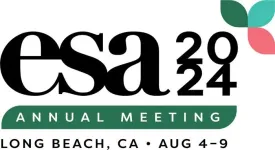(Press-News.org) FOR IMMEDIATE RELEASE
Media Contact: Elizabeth.Fernandez@ucsf.edu, (415) 502-6397
Subscribe to UCSF News
Study Finds Big Disparities in Stroke Services Across the U.S.
Low-income communities are up to 42% less likely to obtain stroke center certification.
Hospitals in poor communities are significantly less likely to obtain certification for stroke services, which makes them unable to provide urgent, lifesaving treatment, UC San Francisco researchers are reporting in a 14-year study of the nation’s hospitals.
By contrast, hospitals located in economically mixed or affluent communities were more likely to become stroke certified. Such specialized services are associated with better stroke care and patient outcomes. The findings demonstrate significant disparities across the United States in access to critical neurologic treatment, the researchers said.
The study appeared July 25 in JAMA Network Open.
“Some hospitals do not have the necessary resources to treat patients experiencing certain types of strokes,” said lead investigator Renee Y. Hsia, MD, a UCSF professor of emergency medicine and vice chair for Health Services Research in the Department of Emergency Medicine.
“Our findings can help inform the adoption of broad-based social and policy interventions at the local, state and federal levels to promote equal opportunity and access to important community resources.”
Socioeconomic disadvantage
Stroke center certification, which was introduced in 2004 to improve the quality and coordination of acute stroke care, is granted to acute care hospitals that demonstrate the ability to provide specialized stroke services.
Researchers looked at 5,055 acute, non-federal hospitals from 2009 to 2022. They found that 6% of hospitals were located in the most affluent communities, 11% in relatively advantaged communities, 39% in mixed, 36% in relatively disadvantaged and 7% in the most disadvantaged. Hospital ownership varied: 57% of hospitals were not-for-profit, 17% were for-profit and 22% were government-owned.
After adjusting for population size and hospital capacity, researchers found that hospitals near socioeconomically disadvantaged communities were 20 to 42% less likely to obtain stroke center certification compared with hospitals near communities of average socioeconomic status.
“Hospitals with stroke centers that serve patients with a high proportion of commercial insurance and Medicare tend to be revenue centers, meaning they bring in money for the hospitals,” said Hsia, who is also with the UCSF Philip R. Lee Institute for Health Policy Studies. “Whereas stroke centers in areas with a 'poor' patient payer mix – those with uninsured or Medicaid-insured patients with low reimbursement rates – will operate with much lower or often negative profit margins for those services.
“Providing support for hospitals in disadvantaged communities to obtain stroke center certification may help reduce disparities in stroke care,” she said.
Authors: The other authors were Nandita Sarkar, PhD, of the National Bureau of Economic Research in Cambridge, Mass.; and Yu-Chu Shen, PhD, of the Department of Defense Management at the Naval Postgraduate School in Monterey, Calif.
Funding: The project was supported by the Pilot Project Award from the NBER Center for Aging and Health Research, funded by the National Institute on Aging Grant (P30AG012810) and the National Institute on Minority Health and Health Disparities (R01MD017482).
About UCSF: The University of California, San Francisco (UCSF) is exclusively focused on the health sciences and is dedicated to promoting health worldwide through advanced biomedical research, graduate-level education in the life sciences and health professions, and excellence in patient care. UCSF Health, which serves as UCSF's primary academic medical center, includes top-ranked specialty hospitals and other clinical programs, and has affiliations throughout the Bay Area. UCSF School of Medicine also has a regional campus in Fresno. Learn more at ucsf.edu, or see our Fact Sheet.
###
END
Study finds big disparities in stroke services across the US
2024-07-26
ELSE PRESS RELEASES FROM THIS DATE:
Media Tip Sheet: Urban Ecology at #ESA2024
2024-07-26
Interest in urban ecology is growing rapidly as cities expand and the need to understand urban ecosystems becomes more pressing. The Ecological Society of America’s upcoming Annual Meeting in Long Beach, Calif., Aug. 4–9, features a diverse array of talks and posters dedicated to this dynamic field.
Researchers from around the world will present their latest findings on how urban environments impact biodiversity, ecosystem services and human well-being. In addition to a Symposium devoted to the urban ecology of Greater Los Angeles, dozens of talks and posters will offer valuable insights ...
Michigan Plasma prize honors University of Illinois professor
2024-07-26
July 26, 2024
Contact: Kate McAlpine, 734-647-7087, kmca@umich.edu; Nicole Casal Moore, 734-709-1651, ncmoore@umich.edu; Phillip Kisubika, 217-244-7448, pkk18@illinois.edu
Image
ANN ARBOR—He has honed the power of plasma to advance semiconductor processing, high-quality thin films for magnetic hard drives, and fusion energy. For these and other accomplishments, University of Illinois Professor David Neil Ruzic has been chosen to receive the 2024 University of Michigan Prize for Excellence in Plasma Science and Engineering.
Ruzic is the Abel Bliss Professor of Engineering in ...
Atomic 'GPS' elucidates movement during ultrafast material transitions
2024-07-26
UPTON, N.Y. — Scientists from the U.S. Department of Energy’s (DOE) Brookhaven National Laboratory have created the first-ever atomic movies showing how atoms rearrange locally within a quantum material as it transitions from an insulator to a metal. With the help of these movies, the researchers discovered a new material phase that settles a yearslong scientific debate and could facilitate the design of new transitioning materials with commercial applications.
This research, recently published in Nature Materials, marks a methodological achievement; the researchers demonstrated that a materials characterization technique called atomic pair distribution ...
UMBC scientists work to build “wind-up” sensors
2024-07-26
An international team of scientists, including two researchers who now work in the Center for Advanced Sensor Technology (CAST) at UMBC, has shown that twisted carbon nanotubes can store three times more energy per unit mass than advanced lithium-ion batteries. The finding may advance carbon nanotubes as a promising solution for storing energy in devices that need to be lightweight, compact, and safe, such as medical implants and sensors. The research was published recently in the journal Nature Nanotechnology.
Sanjeev Kumar Ujjain, from CAST, was a lead researcher on the work. He started the project while at Shinshu University, in Nagano, Japan, and continued after arriving ...
Researchers receive McKnight award to study the evolution of deadly brain cancer
2024-07-26
Scientist Dr. Aparna Bhaduri, assistant professor of medicine and biological chemistry, and neurosurgeon Dr. Kunal Patel, assistant professor of neurosurgery, both part of the UCLA Health Jonsson Comprehensive Cancer Center, have received the 2024 Neurobiology of Brain Disorders Award from the McKnight Endowment Fund for Neuroscience, which supports innovative research by U.S. scientists who are studying neurological and psychiatric diseases.
The award, $300,000 over the next three years, supports their efforts in gaining a deeper understanding of the microenvironment's role in shaping human glioblastoma, an aggressive type of brain cancer that is fast growing and difficult ...
Heather Dyer selected as the 2024 ESA Regional Policy Award Winner
2024-07-26
The Ecological Society of America (ESA) will present its 17th annual Regional Policy Award to Heather Dyer, Chief Executive Officer of the San Bernardino Valley Municipal Water District, Sunday, Aug. 4, 5:00 p.m. PDT, during the ESA Annual Meeting Opening Plenary. The ESA annual award recognizes an elected or appointed local policymaker whose record reflects the use of ecological science to inform policy decisions.
“ESA is honored to recognize Dyer,” said ESA President Shahid Naeem. “It’s rare for a biologist with ecosystems expertise to transition from technical science work to executive ...
New study disputes Hunga Tonga volcano’s role in 2023-24 global warm-up
2024-07-26
New research from a collaborative team featuring Texas A&M University atmospheric scientist Dr. Andrew Dessler is exploring the climate impact of the 2022 Hunga Tonga volcano eruption and challenging existing assumptions about its effects in the process.
The remarkable two-day event, which occurred in mid-January 2022, injected vast amounts of volcanic aerosols and water vapor into the atmosphere. Historically, large volcanic eruptions like Tambora in 1815 and Mt. Pinatubo in 1991 have led to significant cooling effects on the global climate by blocking sunlight with their aerosols. ...
Climate is most important factor in where mammals choose to live, study finds
2024-07-26
While human activity has had a massive effect on the natural world, a new study from North Carolina State University finds that climate is still the most influential factor in determining where mammals can thrive. The work sheds light on how climate change will affect wildlife populations.
Roland Kays, lead author of a paper on the work, said the study’s goal was to compare the importance of climate versus human factors in where mammals chose to live. To do so, researchers collected data on 25 mammal species from 6,645 locations across the United States. The study is one of the largest camera trap data analyses ever done. The data came ...
New study highlights global disparities in activity limitations and assistive device use
2024-07-26
A new study of over 175,000 people in 25 countries revealed that individuals in low- and middle-income countries face greater challenges with daily activities and are less likely to use assistive devices compared to those in high-income countries. These findings raise concerns about the global burden of disability, particularly in low-income countries.
Despite decreases in death and cardiovascular disease rates and increases in life expectancy worldwide, people in low- and middle-income countries still ...
Study finds targeting inflammation may not help reduce liver fibrosis in MAFLD
2024-07-26
Researchers at UCLA Health uncovered new information about the role inflammation plays in mitigating liver fibrosis, which is associated with metabolic-associated fatty liver disease (MAFLD), one of the most common diseases in the world affecting up to 40 percent of U.S. adults. While inflammation in the liver has long been considered a prerequisite to developing liver fibrosis, the scarring and thickening of tissue that can impair the liver’s ability to function, this new research suggests ...


